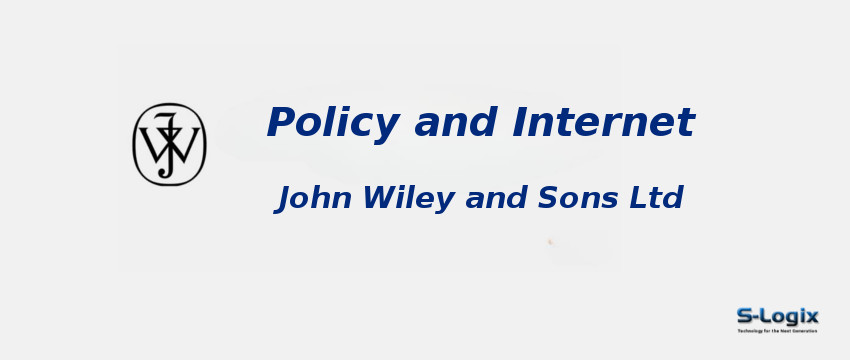Journal Home: Journal Homepage
Editor-in-Chief: Jonathon Hutchinson
Print ISSN: 19442866
Electronic ISSN:
Abstracting and Indexing: SCOPUS
Imapct Factor 2024: 3.6
Subject Area and Category: Computer Science,Computer Science Applications,Medicine,Health Policy,Social Sciences ,Health (social science) ,Public Administration
Publication Frequency:
H Index: 46
Q1: Computer Science Applications
Q2:
Q3:
Q4:
Cite Score: 8.3
SNIP: 2.180
Journal Rank(SJR): 1.537
Latest Articles: Latest Articles in Policy and Internet
Guidelines for Authors: Policy and Internet Author Guidelines
Paper Submissions: Paper Submissions in Policy and Internet
Publisher: John Wiley and Sons Ltd
Country: United Kingdom
